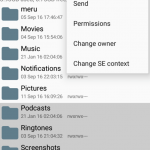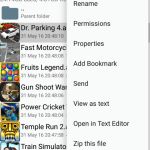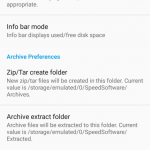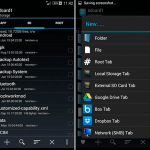Android is one of the most famous operating system found in most of the phones these days. Have you ever wondered why is it loved by so many people? Or why are people crazy about getting a good android phone? The main reason being the level of customizations it offers. If you don’t like anything, you can always go ahead and remove it or replace it with a better alternative. But for doing high-level changes you might need root access. Also you will need an application more like a file manager – Root Explorer. Some people might not be aware of what rooting a device really means. So let us just start with that and then move on to all you need to know about root explorer.
All you need to know about Root Explorer
What is rooting?
Normally while manufacturing smartphones, mobile companies lock certain amount of access to prevent accidental damage that may be done by user while using the device. But if you really want to customize your Android device, you need to unlock the God Mode by rooting the device and gaining access. So in simple terms rooting a device actually means taking full control of your device. Once you are a root user, you are allowed to do any change that you wish to do. It has its pros and cons but we will not go too deep into that. So if you know what you are doing and are willing to take the risk then go ahead and root your device. You will find different methods on the Internet.
Why Root?
Well the first reason being the number of changes that you can do once your phone is rooted is limitless. You can change the overall looks of the software. You can always tinker with the hardware as you possess the access to change the operating system. One can tinker in the game files to score some benefits. Changing the system parameters will always need full root access.
Disclaimer: Any changes you make are your responsibility – valid even if your phones get corrupted/bricked or stop working due to some faults.
What is the role of Root Explorer?
So basically if you need to change something, you will need to browse through all the system files and folders. Some of the ready made apps might do specific changes for you, but if you want to DIY then you will need a file explorer. But choosing any file explorer won’t do justice as you will need to access the system files after rooting. This can be done from an app that can make good use of root access and make the necessary changes. One such very famous application is the root explorer. As the name suggest that the root explorer will help you to edit system files once you have the root access. This doesn’t mean that you cannot use the root explorer without a rooted phone. On an unrooted device, root explorer will perform just like a normal file explorer showing you different folders and files that might be created by user or the device for storing app related information. But the real fun of using root explorer will only be when you have the root access.
You are reading: All you need to know about Root Explorer
Where can you get Root Explorer?
You can always download the software from this link – Root Explorer Download. This is like the premium version of the app which is available on Playstore for a small fee. But from this link you can actually download the root explorer for free. After downloading the app, you will need to give permissions. If you are using a rooted phone then provide the normal permissions along with the root access. The SuperUser app might open up while assigning the permission to root explorer. Give all the required permissions to the root explorer. Also remember to check the unknown sources option from the settings menu before you go ahead and install the APK file.
What can you do with Root Explorer?
As discussed root explorer will help you edit system files. Here is a list of features that root explorer can offer you:
- Browse files
- Editing System Files
- Editing build.prop
- Modify/Delete system apps – good riddance
- Move apps to system folder
- Edit general functions
- Change gaming files and parameters
- Changing read/write permissions for a file/folder
Screenshots from the Root Explorer App:
Overall all these features make the root explorer one of the best file manager there is to enjoy the root browser access to the fullest. One major change you can do after rooting is now you can actually completely delete/uninstall system apps. People suffering problem from bloatware will surely understand the happiness. By rooting you are one step closer to the hardware and software present in your smartphone. By rooting you can also change the values of your processor to overclock or underclock it. Underclocking processor which actually save your battery life while overclocking will increase the performance. Again tampering with the game files will earn you some major benefit in the digital gaming world. One of the other famous thing that is famous in the rooting world is the Exposed Framework. You can read all about it on the Internet.
So overall rooting might be a risky task – some people actually manage to hard brick their devices. Rooting is a talent just like other things. But many times the risk is really worth taking. It all depends on your curiosity level. So this was almost all you need to know about Root Explorer. Let me know if you have any doubts regarding anything in the comment section below.










Very Interesting and wonderfull information keep sharing busybox apk for lucky patcher